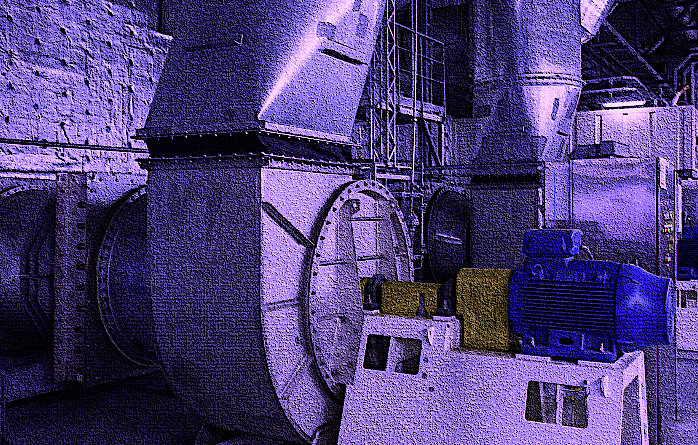The title of this article says it all. Let’s explore the issue by using centrifugal fans and blowers as an example. (Keep in mind that a similar “upgrading” discussion applies when it comes to other types of packaged equipment in plants and facilities.) Given the example in this article, consider the well-respected API Standard for centrifugal fans and blowers: API 673.
As most reliability-focused owner-purchasers know, API 673 contains many “bulleted” clauses that require re-affirmation by the purchaser. In other words, the end-user will obtain a reliable machine if tick marks have been placed in the boxes next to all the right options. If the purchaser does not place a tick mark on the right boxes for the various options, the vendor will provide mere bare-bones or minimum-acceptable designs.
The issue often arises if the EPC (Engineering-Procurement-Construction) firm purchases a “Packaged Unit” of a boiler fan or blower. Replicating an entire pre-engineered package saves everybody time and money over an accessible purpose-built or custom design. Everybody loves it until the ramifications of a low-cost and quickly delivered standard package become evident. The initial money saved must then be spent on more frequent preventive maintenance or more extensive repairs.
Fortunately, though, an additional option is available: let’s call it judicious upgrading. When buying packaged boilers, owner-purchasers might consider buying them with stand-by spares, especially if one’s management is repair-focused and ready to invest in frequent repairs. Some people like to do repairs because it keeps the workforce happy with overtime income. More often, if the project people have been allowed to make their cost estimates based on lowest pricing of available equipment, the plant will often end up with repair-intensive equipment and, in the process, almost certainly fail to achieve Best-in-Class status.
Still, a project that comes in slightly under budget and goes on-stream two days ahead of schedule can be noteworthy. The project team will (with near-equal certainty) be commended and its members promoted. At that point, though, the burden is being shifted to the facility’s machinery engineers. The newly purchased equipment package becomes their responsibility. That brings us back to the overarching problem. Those engineers must somehow selectively upgrade the fans and blowers at the plant. (Note: Kingsbury and Waukesha are among several manufacturers of retrofit circulating-lube-oil systems that integrate suitable sleeve-type radial, and tilt-pad thrust bearings in a flange-on subassembly.)
The end-user organization could do its own upgrading by retrofitting a circulating, stand-alone lube-oil-pump-around system. Such systems are available from prominent mechanical seal manufacturers that normally supply them for their pressurized dual seals. Small, closed oil-mist systems are another possibility. Optimized oil application is very important. Synthetic oils should be used. And the bearing housings should be retrofitted with modern bearing protector seals, i.e., those incorporating sealing O-rings, which move diagonally and, at worst, come in contact with generously dimensioned contoured surfaces.
Reliability-focused end-users could probably continue using rolling-element bearings and either upgrade to a small pump-around oil supply or small (~USD 6,000) oil-mist system. Best-in-Class companies have been using oil mist on their boiler fans and blowers since 1975 (see example in Fig. 1.) Many of those organizations can look back on almost 50 years of uninterrupted success. Not bad.
 Fig. 1. One of two oil-mist-lubricated pillow-block bearings
Fig. 1. One of two oil-mist-lubricated pillow-block bearings
supporting a large air blower at a world-scale olefins plant.
The last and least-desirable alternative to upgrading packaged equipment would be to just do nothing, until it’s too late. Sadly, that’s exactly what many end-users still do. Nothing.TRR
Editor’s Note: Click Here To Download A Newly Updated List Of Heinz Bloch’s 24 Books
ABOUT THE AUTHOR
Heinz Bloch’s long professional career included assignments as Exxon Chemical’s Regional Machinery Specialist for the United States. A recognized subject-matter-expert on plant equipment and failure avoidance, he is the author of numerous books and articles, and continues to present at technical conferences around the world. Bloch holds B.S. and M.S. degrees in Mechanical Engineering and is an ASME Life Fellow. These days, he’s based near Houston, TX.
Tags: reliability, availability, maintenance, RAM, centrifugal fans, centrifugal blowers, boilers, bearings, oil-mist systems, lube-oil pumps, sealing systems, labyrinth seals



